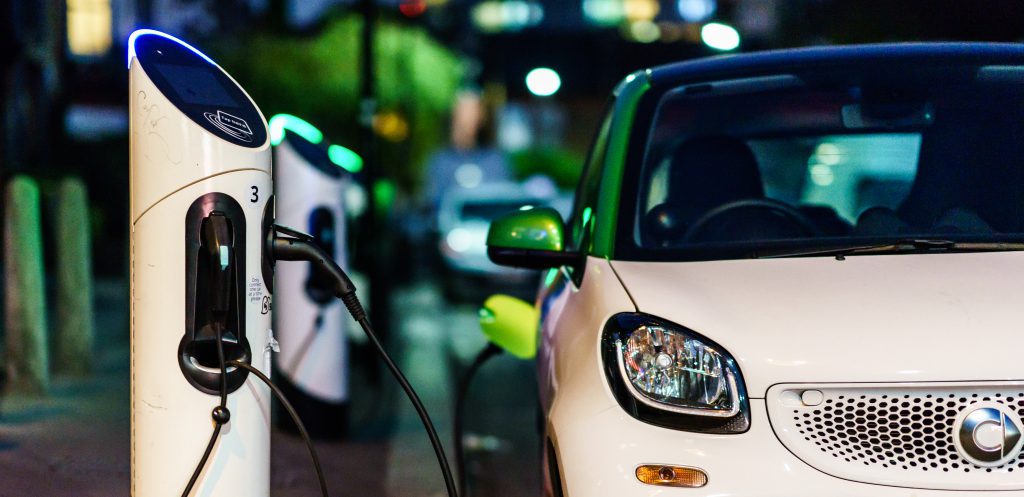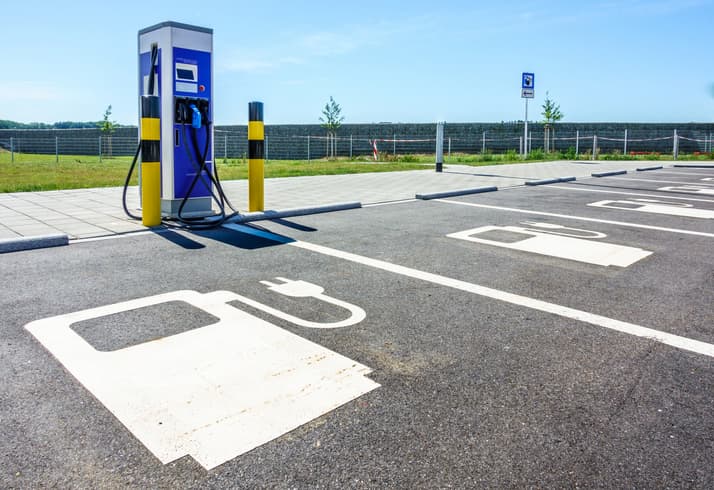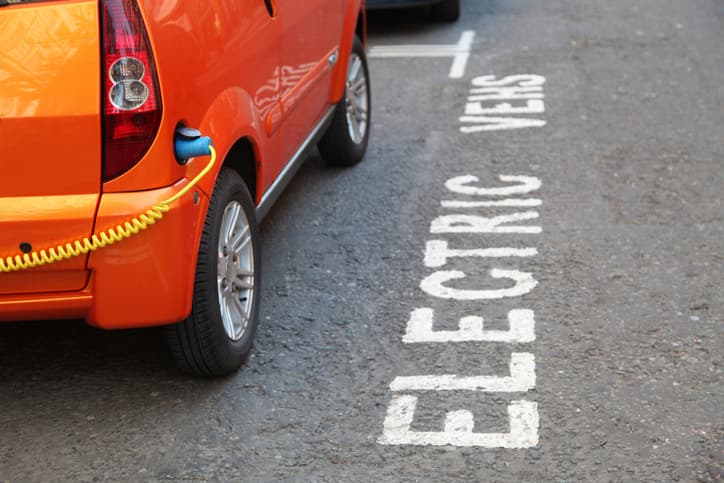We are hiring! Are you an experienced technician? Join our outstanding team »
Everything You Need to Know About EV Ownership
Reading time 6 minutes
Categories Automotive Industry » Driving Tips »
We are hiring! Are you an experienced technician? Join our outstanding team »
Everything You Need to Know About EV Ownership
Reading time 6 minutes
Categories Automotive Industry » Driving Tips »
In 2030, the sale of solely petrol and diesel cars will be banned in the UK. The move to hybrid and electric vehicles has many benefits, but primarily it is hoped to reduce carbon emissions and be better for the environment.
With this in mind, our team at The Windscreen Company have put together this handy guide informing you of everything you need to know about EV ownership.
Table of Contents:

For many people, the main motivation behind getting an electric car is the environmental impact they have. People are more conscious than ever about how their behaviour affects the environment, and an EV is seen as a good way to reduce our carbon footprint.
According to the Mayor of London, road transport accounts for half of the city’s air pollution. So reducing this wherever possible is undoubtedly a positive step. Unlike a petrol car, an electric car has no exhaust meaning it does not expel harmful carbon dioxide emissions. Therefore the more electric cars, the cleaner the air.
However, some people question whether electric cars are truly green due to the amount of electricity that needs to be generated to power them. Generating electricity does have an environmental impact, but a study from the European Energy Agency discovered that even with this generation, electric cars still produce between 17%-30% fewer emissions than their petrol counterpart.

In terms of finances, powering electric vehicles is significantly cheaper than fuel cars. For example, the UK’s biggest charging providers, Ecotricity, charge £6 for a 30-minute charge at one of their rapid charging points. For most electric cars, this would power 80% of its battery – a full tank of petrol or diesel is significantly higher.
There are a wide range of types of chargers out there, with most electric car owners opting to have a charging point installed at home. They can range in price but in the long run, can save you time and money. Not counting rapid charging points, on average it will take four hours for an electric car’s battery to go from flat to full. This is why most people choose to have one at their house so charging can be done overnight.
The biggest challenge facing the reliability of the charging network is infrastructure. According to Auto Express, the UK currently has just over 30,000 public charging stations in 12,000 locations. This is clearly going to need to increase as demand rises, but the government do have plans in place to install more.

Every electric car will require a different type, size and capacity of battery. Despite this, there are two main types of EV battery. A lithium-ion battery (commonly used by the likes of Tesla) and a nickel-metal hydride which is more popular among hybrid brands.
Each electric vehicle will have a different size and capacity of battery, so consider what you require the car for. If you’re only going to be using the car for short journeys such as to and from work, then a smaller capacity will do the trick. But, if you’re someone who travels far and wide, you may want to think about a larger option.

Another benefit of electric cars is that they’re made up of fewer components- meaning fewer things can break. Which is good for convenience and your bank account.
Unlike petrol cars, electric cars have a different braking system and require no fluids or fluid disposal systems. This means that they can go far longer without needing any TLC.
The main thing to keep an eye on is the battery. As previously mentioned, every electric vehicle’s battery is different in size and capacity. Due to the pivotal role the battery plays in an electric car, it has a far shorter life compared to a conventional car battery meaning it will need replacing more often and require additional maintenance.

All vehicles can suffer in extreme weather conditions, but electric cars can be particularly susceptible.
This is mainly due to the battery’s vulnerability. When the weather is very hot, electric cars can lose power so it’s important not to put any additional strain on the vehicle.
There are many ways you can keep it cool, such as keeping the air conditioning on while the car is charging, parking in the shade so the battery doesn’t overheat and leaving windows open so cool air can circulate.
If the weather becomes colder, then it isn’t unusual for the distance electric cars can travel without charging to decrease. It’s important to keep your vehicle warm when the temperature drops and there are several ways to do this.
Firstly, when your car is charging you can heat it up, This is called preconditioning and some electric vehicles even come with applications that do this for you. Other good ways to keep your car heated include accelerating and braking smoothly, getting heated seats and parking in enclosed spaces. All of these can help protect the car from the cold and help the battery to last longer.
In the UK, the government is keen to encourage people to go electric with a ban on the sale of petrol and diesel vehicles coming into force in 2030. With this in mind, there are a number of financial incentives in place.
To begin with, there is currently a £3,000 grant in place if you’re buying a new electric car. The grant is designed to pay for 35% of the car (up to a maximum of £3,000). To be considered for the grant, the car must be able to drive at least 70 miles solely powered by electricity, and only vehicles that are less than £50,000 are eligible.
As well as this, if you’re a business that requires company vehicles or a fleet of cars, then all electric vehicles are currently exempt from company car tax. However, in April 2021 this will be increased to 1% tax and 2% in April 2022.
If your electric vehicle requires repairs to its windscreen, then look no further than The Windscreen Company. We understand just how important a windscreen is for your vehicle’s safety and whether a full windscreen replacement is needed or just some repairs, we’re on hand to help. As well as electric cars and vans, we can fix windscreens on fuel and hybrid vehicles. So, for more information on our services, contact a member of our team today.
The Windscreen Company, has over 20 years of experience in windscreen repair and replacement. Since 1998, they have been at the forefront of industry innovation, leveraging the latest technology to ensure customer safety and satisfaction.
The Windscreen Company's, help-and-advice pages offer valuable tips and guidance on maintaining vehicle safety through quality windscreen care, while also featuring updated industry realted content.
By clicking "Accept All Cookies", you agree to the storing of cookies on your device to enhance site navigation, analyse site usage, assist in our marketing efforts, and for personalised advertising.